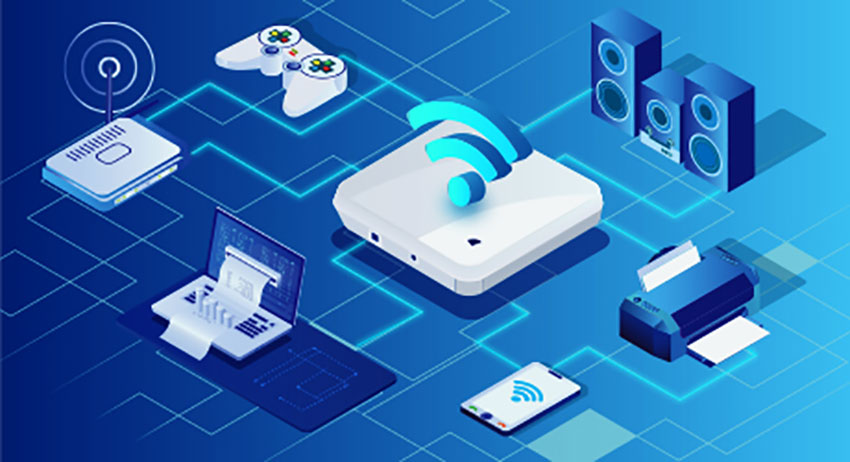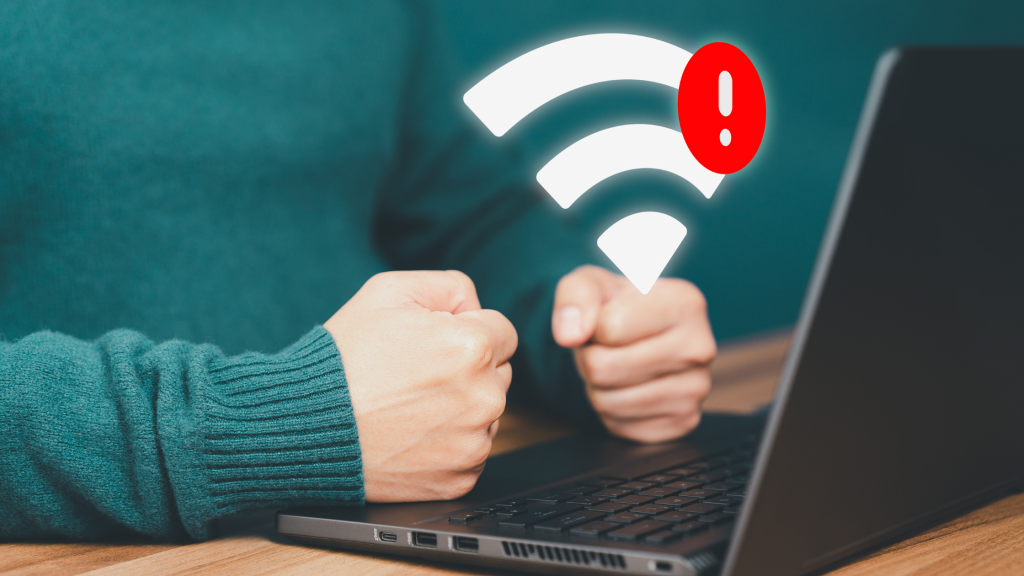

Wireless connections are everywhere – in business and personal life. They are convenient, from Wi-Fi to a cordless keyboard or mouse, but anytime data travels through the air, someone is figuring out new ways to steal or compromise it.
Two Facts:
FACT #1: Wireless networks are less secure than wired ones. Sometimes things which seem logically and obviously true are not. That is not the case here. Data traveling over cables and wires is much more difficult to hack than data that travels through the air – obvious and true. However, both can be hacked.
FACT# 2: Everything can be hacked. This the #1 fundamental rule of Cybersecurity. If you are looking for good local IT services from among the IT Support Los Angeles community, just ask them if that fact is true. If anyone says it is false, they are either lying or incompetent – a red flag that tells you to move on to the next candidate. Those who don’t agree with this fact generally fall into the ‘Break/Fix’ hourly rate IT support ‘guys’ – not within the ranks of more knowledgeable and experienced Managed IT Services providers
The US Pentagon pf the Department of Defense (DoD) has been hacked, as well as nearly every Cabinet Department, from Agriculture to the Treasury. The list of hacked entities which should have state-of-the-art Cybersecurity goes on and on. Nuclear Power Plants have fallen victim to hack-attacks. On
High-level hackers attacking government entities and Fortune 500 companies are not the hackers who are looking for you and your information. The world of cyber crime has its own system of echelons. The lowest crooks are just out for small money - like breaking into cell phones or planting Ransomware to grab a few hundred bucks.
Mid-level hackers are the crooks you need to worry about. Just like all crooks, this is a business, they are always working and they’re looking for you. It is a business that relies on outsourcing. Typically, the criminals who lock up your system with a Ransomware demand are different than the people who have done the ‘grunt’ work – those who break passwords or mine social media for information enabling them to gain the false trust of key employees with malicious ‘phishing’ emails.
Criminals always take the path of least resistance - the ones that exhibit a high probability of success. That is not represented by cables and wiring. It’s in the air. In the early days of wireless networks, Cybersecurity was not the challenge that it is today. It was new, but cyber crooks immediately started crafting ways to exploit it/ Make no mistake about it: Cyber criminals spend a lot of time and money on Research & Development (R & D). As stated, it IS a business – one that depends on staying ahead of the technology and Cybersecurity curve.
Is a wireless network secure?
Not automatically, but it can be. Wireless networks operate with the use of radio waves, and it is very difficult to contain such waves. By now everybody has heard the stories of crooks parking outside of a Starbucks and snatching any data they want from customers using the free Wi-Fi. A crook can sit in proximity to any wireless system and grab data out of the thin air. There are any number of devices on the market that facilitate breaking into wireless communications of all types.
In general, wireless standards do not mandate a high level of security. It is up to the business or the IT Support they use to ensure that all top-level Cybersecurity measures are in place. These days, there is no reason a wireless network cannot be as secure as a wired network providing the configuration is done correctly. This kind of expertise is commonly found in the Managed IT Services field – rather than with the cheaper Break/Fix IT crowd, where expertise and honesty is often found wanting.
The most important point is to have your wireless network – whether for home or business – set up by a qualified professional.
Frequently Asked Questions
Q: What should be the security type for wireless network?
A: First and foremost, encryption. All data flowing anywhere should automatically be encrypted – especially if it flows through the air. If your network is older, and not cared for by a qualified Managed IT Services provider, you may have outdated, inferior, and easily circumvented encryption. Forget about the old WEP (Wired Equivalent Privacy) and WAP (Wi-Fi Protected Access) – these weak earlier ‘protections’ are no protection at all. The gold standard is WPA2-AES. There is a newer WPA3 which is more secure, but many legacy Wi-Fi still do not recognize it. Recalls the old network bywords: “Update and Upgrade constantly”.
Q: What does WPA2 AES mean?
A: WAP (Wi-Fi Protected Access) coupled with AES (Advanced Encryption Standard). This encryption method, with CCMP (Cipher Block Chaining Message Authentication Code Protocol) presents the strongest security for wireless networks and Wi-Fi in general (your home should also use this). The ARC/CCMP configuration incorporates 2 state-of-the-art cryptographic techniques for the best modern security between a wireless user and the access point. The online PCMAG breaks it all down HERE.
Q: Is CCMP the same as AES?
A: They are similar and somewhat intermingled, but not the same thing. CCMP is a security protocol which uses the AES specified algorithm for encryption. As a battlefield analogy, think of it as two machine gun nests on the same side of a field but at different ends – designed to eliminate any blind spots and provide the fullest possible coverage.
Q: Is a wireless keyboard a security risk?
A: A wireless peripheral device like a keyboard or mouse are cumbersome to attack and offered limited success and profitability for most cybercriminals. These attacks are called MouseJacking and thus far, have not amounted to much and account for a miniscule percentage of attack tactics. As one of the Cybersecurity experts at IT Support LA said, “Your mouse is the last thing crooks will use to hack your computer.” BUT: He, and all qualified IT support pros know that things can change in a heartbeat with the introduction of new technology – what is a hassle that provides small dividends today may be the go-to crime tomorrow.
How secure is your wireless network?
IT Support LA offers a FREE, no-risk network and security assessment. No strings, no obligation.
Just fill out the form on this page or call us at:
818-805-0909


